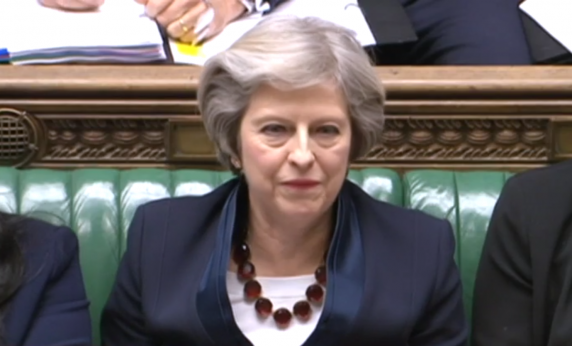Government announces £20bn increase to NHS funding

Prime Minister Theresa May has announced a £20bn NHS funding increase over the next five years.
This translates to a 3.4% year-on-year annual funding increase, amid reports that health secretary Jeremy Hunt had asked for a 4% rise.
Financial analysis by the Health Foundation and Institute for Fiscal Studies, published last month, suggested the NHS needed at least 3% annual increases not to deteriorate, but 4% in order to be able to put into action NHS England’s ambitious transformation plans.
The announcement, which comes as the NHS is due to turn 70 years old next month, will be funded in part via a ‘Brexit divident’, Ms May claimed.
It also comes as Mr Hunt last week said last week that the promised long-term funding plan for the NHS must have earmarked funding for boosting primary care capacity.
Speaking on the BBC’s Andrew Marr Show yesterday morning, Ms May said the Government will draw up a 10-year plan for the NHS, which will include ‘more doctors, more nurses’ and ‘significantly more money going in to the NHS’.
She said that meant that ‘at the end of five years, by 2023/24, there will be £20bn more in real terms being spent on the NHS’.
‘I can tell you that what I’m announcing will mean that in 2023/24 there will be about £600m a week more in cash going in to the NHS,’ she said.
And she added: ‘Now of course we’ve got to fund that. That will be through the Brexit dividend.
‘The fact that we’re no longer sending vast amount of money to the EU once we leave the EU and we as a country will be contributing a bit more.’
RCGP chair Professor Helen Stokes-Lampard said the ‘significant amount of money’ was ‘welcome confirmation’ that the Government is ‘committed’ to the NHS.
But she added: ‘It is essential that as more details of her long-term plan are announced, general practice is recognised for the vital role it plays in delivering safe, effective patient care in the community, and keeping the entire NHS sustainable.’
‘The 3.4% real terms increase in investment is to be welcomed. However, it still falls short of the 4% that the Institute of Fiscal Studies recently claimed is necessary for a health service fit for the future, and which the RCGP, and other members of the Academy of Medical Royal Colleges, representing doctors right across medicine, has supported – so it is vital that any new investment is used wisely, and in the long-term benefits of patients and the entire NHS.’
Professor Helen Stokes-Lampard warned that this comes as GP workload ‘is escalating in both volume and complexity’ and ‘our workforce is actually declining’.
‘As a result, GPs and our teams are working under conditions that are simply not safe for ourselves, our teams, or our patients. This is unsustainable and we call on the Prime Minister to specifically address this in the detail of her plans,’ she said.
BMA chair Dr Chaand Nagpaul said: ‘It is refreshing that the Government has finally conceded that our health service needs extra resources, with BMA analysis showing a significant funding gap compared to other leading European countries.
‘However, we will be scrutinising the detail of this new package of funding to assess the degree to which it will make a real difference in both the short and long term to frontline patient care.’
V proud of the NHS – but today esp proud of PM who made clear NHS is #1 priority.Package won’t mean pressures vanish overnight but does secure future of NHS with for first time stable 5 yr funding backed by 10 yr plan which as NHS leaders say allows real prog on cancer& ment hlth
— Jeremy Hunt (@Jeremy_Hunt) June 17, 2018
What extra funding is the NHS receiving?
- The NHS will receive an increase of £20.5bn a year in real terms by 2023 to 2024, an average of 3.4% per year growth over the next five years.
- The funding will be front-loaded with increases of 3.6% in the first two years, which means £4bn extra next year in real terms, with an additional £1.25bn cash to cope with specific pension pressures.
Source: Statement to Parliament by health secretary Jeremy Hunt on 19 May
Pulse October survey
Take our July 2025 survey to potentially win £1.000 worth of tokens










